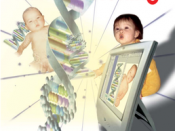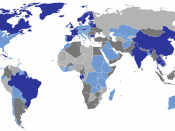Speech 10 March 2001 Is Cloning Moral? With the recent advances in cloning techniques many questions have been raised as to the moral acceptability of the act. There have immerged varying opinions within the scientific community as well as in larger society. While many of the concerns surrounding cloning "are speculation based on less than adequate knowledge of the subject, there are some views that are based on a solid foundation"ÃÂ (Robinson). There are some instances in which cloning could be considered moral and certainly beneficial to many. Firstly, cloning could be used to help regenerate populations of endangered species. Secondly, the cloning of transgenic animals in order to harvest transplantable organs, and tissues, as well as hormones and proteins used to save human lives. On the other hand there are contexts in which cloning would cross the moral border. Firstly, we would be infringing on the rights of the cloned individual by subjecting it to physical and emotional hardships.
Secondly, if cloning is taken to the next step and humans are cloned, science would be over stepping moral boundaries by "playing god".
Firstly, as the human population grows larger it seems inevitable that we destroy more and more natural habitats thus creating more endangered species. "Cloning populations of these endangered species has an important place in plans to manage species that are in danger of being wiped out"ÃÂ (Scientific American). By establishing a worldwide network of repositories to hold frozen tissue from all possible animals we would be able to clone populations of species that become endangered without compromising the genetic variation of the species. Cloning could be used in conjunction with natural fertilization. There are many cases in which it is very difficult to get captive animals to reproduce even under the best conditions, "by using cloning we...


